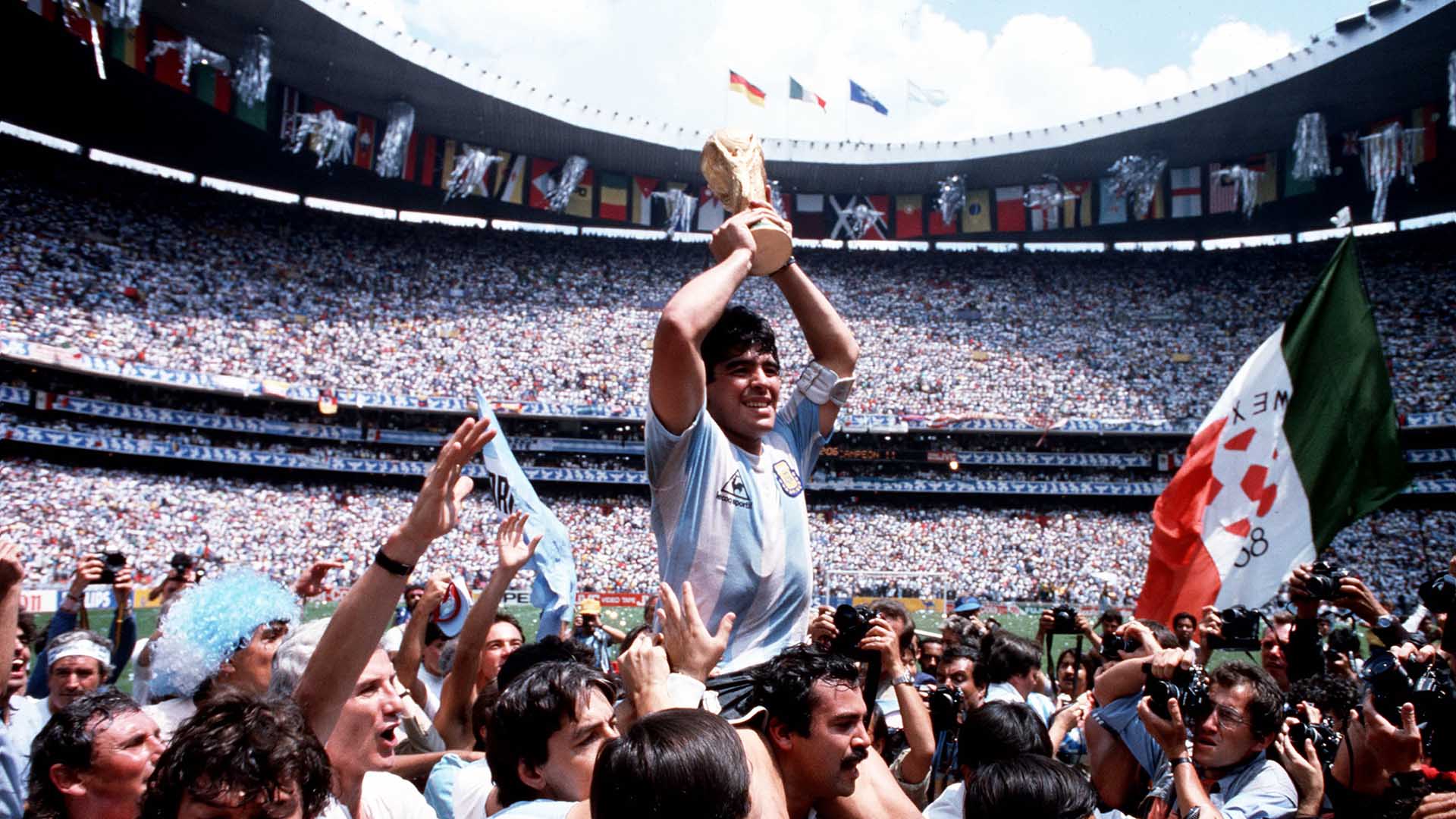Diego Maradona
The director of 'Senna' and 'Amy' turns his gaze towards one of soccer's most famous and scandalous players.
Overview
Football god? Addict, scoundrel and swindler? Diego Armando Maradona has been called all of the above. From champion to crook and superstar to scum, he's been labelled better and worse, with his status as a walking contradiction rarely lost on anyone in his orbit. The famed Argentinian soccer player himself recognises it. During his playing heyday in the 80s and 90s, he was known to tell people that he was Maradona on the field but Diego away from the spotlight. In Asif Kapadia's probing documentary about the sportsman, Maradona's career is further summarised by another juxtaposition: "a bit of cheating and a lot of genius".
While that sentiment applies broadly, the line refers specifically to his "hand of god" moment in the 1986 World Cup. During a quarter-final against England, he scored a pivotal goal by illegally using said appendage. Argentina won the game and went on to claim the entire tournament, all with Maradona as team captain. He knew what he'd done, as he admitted years later and again explains in Diego Maradona. Anyone under the misapprehension that sports players always stick to the rules — and never do whatever they can, testing the limits to see what they're able to get away with — might well be shocked. But that's Maradona, especially when he was the world's most acclaimed and expensive player, an international headline staple, and a hero not only on home soil, but in Naples where he ruled the turf for seven seasons. He describes his chosen sport as "a game of deceit", after all.
In setting his sights on the polarising footballer, Oscar-winner Kapadia does what he's always done so expertly in his other celebrity-centric documentaries. In Senna and Amy, the British filmmaker trawled through a treasure trove of archival material to tell his subject's stories, knowing that their own words — and their own actions at the height of their respective success — will say more than anything else can. The same overall approach applies to Diego Maradona, but three crucial differences distinguish the director's latest picture. Maradona is still alive, firstly. His voice, not just from then but now, features prominently in the film as a result. Lastly and most importantly, his isn't a gone-too-soon tale of tragedy. If they were still here today, Ayrton Senna and Amy Winehouse's own contrasts might've become more evident, however their deaths gave their lives a recognisable narrative. Still kicking, even if he's long, long past his prime goal-scoring days, Maradona can't follow the same distinct trajectory.
Faced with this predicament, Diego Maradona leans into the inescapable truth. It doesn't seek to celebrate, condemn, lionise or lament, but to present Maradona as he's been perceived by the world — both as one of the greatest soccer players of all time (if not the greatest player of all time), and as a womaniser, drug abuser and crony of the Italian mafia. Although the film focuses primarily on the decade surrounding his SSC Napoli stint, he's also seen as a stocky kid who grew up in absolute poverty, then a multi-millionaire living the life of luxury. He's the breadwinner from his teenage years onwards, and a man quick to squander a fortune. Colleagues, coaches, trainers and other industry folk lavish praise on Maradona's immense speed, skill and football smarts, then call out his arrogance, selfishness and swagger. He adores his family, but happily turns his back when scandal wafts through the air. In both his personal and professional lives, the list goes on; in fact, the doco can't cover it all. If his story was fiction, the endless incongruities would seem like overkill. If it was a soccer match, a commentator would dub it a game of two halves.
As Senna and Amy have so grippingly demonstrated, there's something equally fascinating and relatable about famous figures whose plights have ended sorrowfully — stars who've soared and then crashed in the most final way, all while chasing their dreams. The same applies to someone as contradictory as Maradona, who embodies humanity's competing, fighting urges in one incredibly well-known package. Whether you're a diehard soccer fan, you flinch at the thought of calling the world game 'football' or you couldn't care less about sport at all, it's this truth that holds viewers' attention in Diego Maradona. As the movie delves into the eponymous Argentinian's life for two hours, it lays bare Maradona's labyrinthian nature. And, while his highs and lows have reached far beyond the levels that most will ever experience, who doesn't feel like they're multiple things all at once?
Mirroring the grainy footage at his disposal, Kapadia doesn't smooth out Maradona's edges. The footballer is never a sympathetic hero in this entertaining and insightful film, nor a clear-cut villain. If maintaining that balance sounds like a significant feat given all that's known about Maradona and all there is to his tale, it's one that the director handles with his usual storytelling and technical prowess. Corralling the same crew that worked on his past two docos (particularly editor Chris King and composer Antonio Pinto), he weaves his audio and visuals together with silkiness reminiscent of Maradona's own on-field best. With revealing interview snippets heard rather than seen, and the picture steadfastly maintaining its gaze on its main man through both media clips and home videos, Kapadia crafts a jam-packed yet nuanced and thoughtful portrait. Yes, that's a juxtaposition again. Even decades after his career triumphs and subsequent fall from god-like standing, Maradona will never shake them, as Diego Maradona unpacks with aplomb.





